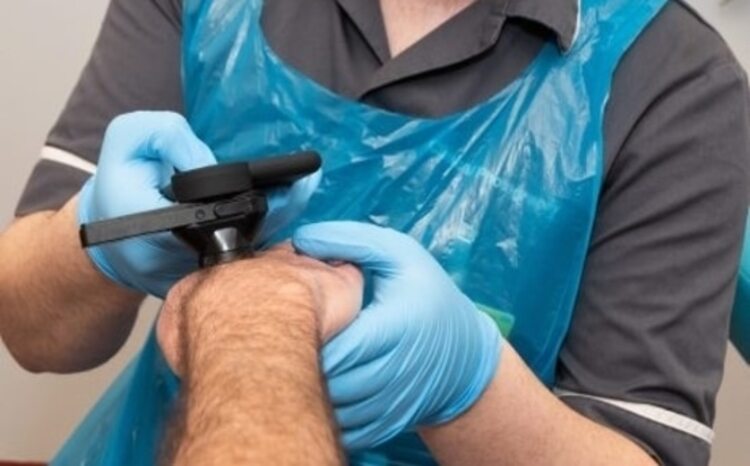A report commissioned by NHS England has found that the use of autonomous AI could significantly improve effectiveness and reduce wait times in skin cancer pathways.
The report, titled ‘Evaluating pathways for AI dermatology in skin cancer detection’ and published by consultancy Edge Health, highlights the potential of AI as a medical device in diagnosing skin cancer. AIaMD, when certified under classes UKCA IIa and CE III, can be employed autonomously within the NHS.
Researchers conducted a meta-analysis comparing dermatologist accuracy in excluding melanoma with AI assessments. The AIaMD, DERM by Skin Analytics, demonstrated an impressive negative predictive value of 99.8%, surpassing human dermatologists.
This high accuracy suggests that AI could improve the efficiency of referrals and expedite urgent care for patients. Additionally, the report indicates that implementing AI in skin cancer pathways could lead to significant cost savings and alleviate the burden on dermatology services.
Julia Schofield, a consultant dermatologist at United Lincolnshire Hospitals NHS Trust, underscores the potential benefits of using AIaMD in diagnosing benign skin lesions, which make up the majority of dermatology referrals.
Neil Daly, CEO of Skin Analytics, emphasizes the growing need for improved skin cancer diagnosis, citing increasing wait times and care standards. DERM is currently being utilized in several NHS sites across the UK to streamline urgent suspected skin cancer pathways.






